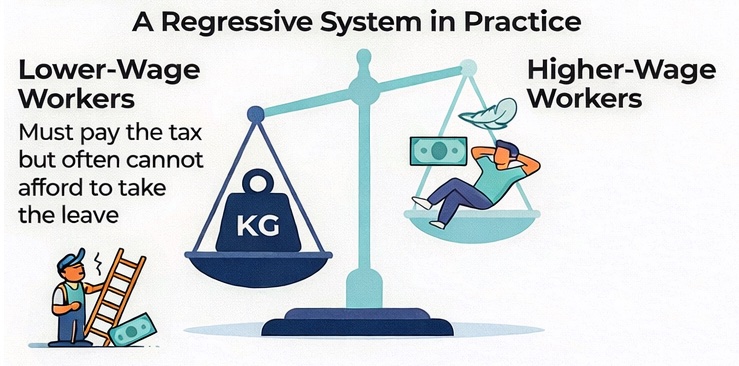A recent article in The News Tribune (Tacoma) featured a headline declaring, “Businesses elsewhere report few problems with sick leave laws.” The crux of the article is that business owners in Tacoma should not panic about that city’s impending paid sick leave law because some business owners in other cities with paid sick leave mandates say the regulation is not horribly burdensome. However, read past the headline and you get a glimpse of some of the real world consequences of such mandates.
The owner of eight McDonald’s franchises in Seattle, which employ about 500 workers, says the City’s paid sick leave mandate has significantly increased his costs. First he had to pay to update his payroll software in order to track the accrual and use of leave hours so he could comply with the new law. Then came the dual costs of paying the wages of workers who began using the paid leave, while paying another worker to fill in for the absent worker. And he says more workers are calling in sick “a lot more” than before the law was in place.
Seattle’s sick leave mandate increased his costs by $17,600 per restaurant the first year and jumped to $19,200 per restaurant the second year. That is an increase of $153,600 per year for all of his Seattle locations. He says roughly two-thirds of those higher costs are the result of paying wages to workers who call in sick, with the remaining one-third the cost of paying the workers who cover those last-minute shifts.
Of course, he can’t afford to simply absorb an extra $153,600 per year. He says his profit margin is already low—around 5% to 6%. So he had to raise menu prices in his eight Seattle stores. Multiple studies show this is a typical response to the increased costs of a paid sick leave mandate.
Dave Meinert, a Seattle restaurateur who supports that City’s paid sick leave law, acknowledges that while his business, which operates with a much higher profit margin, can afford the increased costs, those extra costs could easily be difficult for businesses with a smaller margin:
If it costs me a little bit, like 1 percent, and my average margin overall is 15 percent, I’m not losing much. But if I’m a single operator with a small margin, it’s a totally different story.”
Meinert says Seattle's newly passed $15 minimum wage is a much bigger burden for his business and others; a simliar push for a $15 miinimum wage is already underway in Tacoma.
The owner of Elliot Bay Book Co. says all of Seattle’s labor mandates are taking their toll as the City becomes an increasingly more expensive place to live and do business:
We want our employees to be treated well. But this can’t keep falling on small business owners’ shoulders.”




